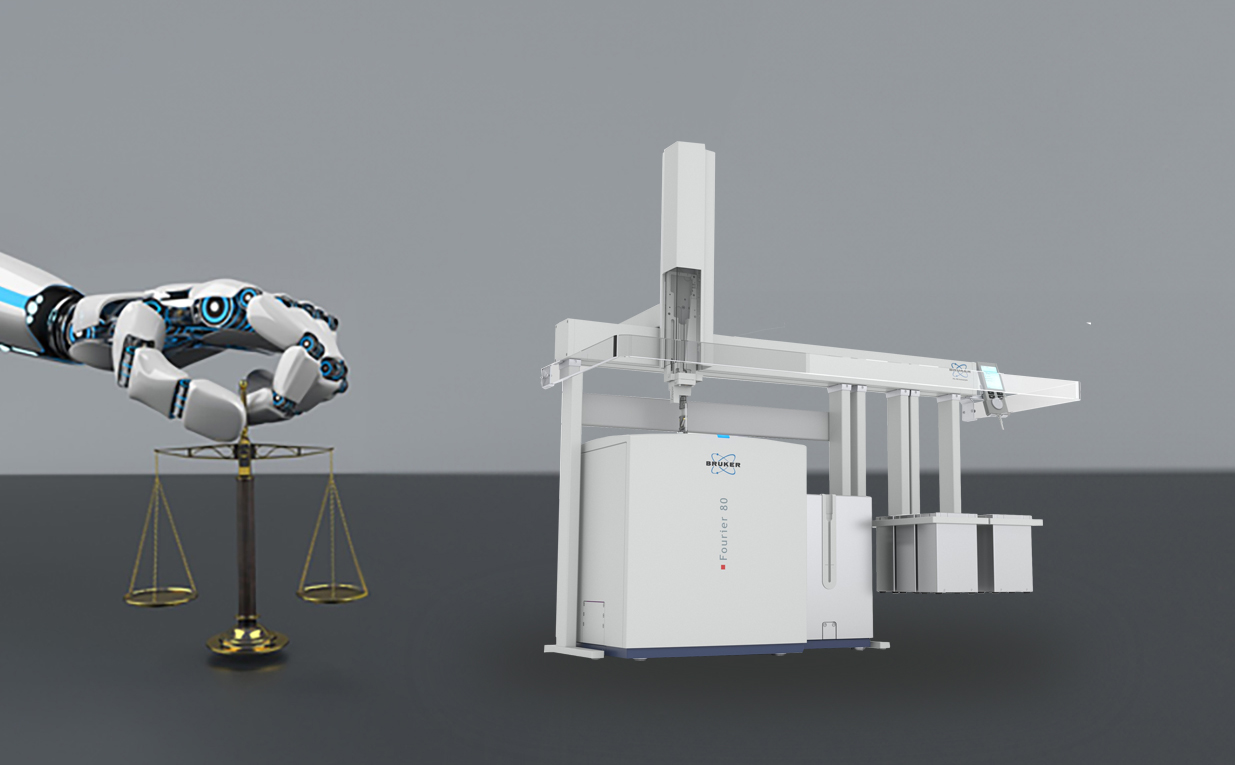Rozwiązania NMR i EPR w farmakologii
Nuclear Magnetic Resonance (NMR) and Electron Paramagnetic Resonance (EPR)
NMR and EPR are invaluable tools enabling access to detailed structural, quantitative and dynamic insights, supporting the characterization and understanding of molecules, materials, interactions and complex chemical or biological process. These are indispensable to R&D highly demanding sectors such as in the Biopharmaceutical and Biotech industry. These techniques are routinely applied in research and development laboratories considering their unique ability to deliver comprehensive molecular and behavioral information, contributing significantly to accelerate the drug discovery and development process. Considering the dramatic increase of the complexity of the therapeutic product landscape over the last 30 years, going from small molecules drugs to complex biologics to Cell & Gene therapies, leveraging the capabilities of NMR and EPR means not just advancing scientific understanding but also gaining a strategic edge in new drug product research and development throughput, as well as in their manufacturing efficiency.
Sustainable Performance
Pharmaceutical organizations are under growing pressure to accelerate development timelines and improve operational efficiency, all while responding to urgent sustainability challenges. These imperatives span the entire lifecycle, from early discovery through manufacturing and release testing, where innovation must achieve a careful balance between productivity and environmental impact. In the realm of analytics, NMR offers a powerful solution, enabling robust, scalable workflows that support Right First Time results with rapid turnaround, minimal waste, and solvent-free operations. Bruker’s integrated NMR solutions go further by empowering laboratories with smarter processes, seamless automation, and uninterrupted operations. These capabilities help reduce manual effort, enhance scalability, and achieve high efficiency - sustainably.
SAR, Biologics & New Modalities
The discovery of small molecule drugs, driven by efficient structure-activity relationship (SAR) studies, and rapid advancements in biologics and new drug modalities, are at the forefront of modern pharmaceutical innovation. The increasing complexity of biologics, such as monoclonal antibodies (mAbs), antibody-drug conjugates (ADCs), and bispecific antibodies, as well as therapeutic peptides and oligonucleotides (collectively known as TIDES), has significantly heightened the analytical requirements for characterizing these molecules. Comprehensive or partial NMR characterization and monitoring of their higher order structure (HOS) by NMR fingerprinting are crucial. These processes ensure efficacy, safety, and regulatory compliance, providing a robust framework for the development and production of novel drugs.
(Bio)Process Analytical Technology (PAT)
NMR has become an essential component of (Bio)Process Analytical Technology (PAT), playing a pivotal role in the understanding, monitoring, and optimization of chemical and bioproduction processes. By integrating flow-compatible solutions such as the InsightMR tube, suitable for both high-field and low-field NMR. This technology enables real-time, customizable process monitoring tailored to specific application requirements. These systems deliver continuous spectral data, empowering scientists to make informed decisions, troubleshoot processes in real time, and optimize reaction or fermentation conditions to enhance yields and product quality. Moreover, they facilitate seamless scale-up from laboratory development to manufacturing, ensuring consistency and reproducibility across production volumes. The Fourier PAT system further extends these capabilities through advanced spectral analysis and smooth data integration, strengthening process control and supporting regulatory compliance thanks to its integration into orchestration software such as synTQ. High-field NMR PAT provides superior sensitivity and resolution, enabling the detection of low-concentration species and detailed analysis of complex mixtures. It supports advanced reaction monitoring and deeper bioprocess understanding. These capabilities are key for precise control and faster development aligned with Quality by Design (QbD). Together, these NMR-based PAT tools enable more efficient, scalable, and innovative solutions for the pharmaceutical and biotechnology industries.
Quality Control
NMR is pivotal in modern pharmaceutical quality control, offering absolute, non-destructive, and inherently quantitative analysis. Its versatility supports applications ranging from raw material identification to precise quantitative assays of final products. With minimal sample preparation and no need for identical reference standards, NMR simplifies risk assessment and life-cycle management, maximizing efficiency with true built-in quality.
The Fourier 80 benchtop NMR delivers these benefits in a compact, cryogen-free, and easy-to-use design, seamlessly integrating into laboratories and manufacturing environments for cost-effective QC solutions.
GMP/GLP compliance is supported by our all-in-one kits, which include ready-to-use protocols, certified samples, and integrated workflows for qualification and system suitability tests. Data integrity and compliance with 21 CFR Part 11 and EU-GMP Annex 11 are ensured through intuitive software, supporting automated workflows and high customization. These solutions enable efficient operations while meeting strict regulatory requirements, maximizing the potential of NMR in your laboratory.
Analysis of Drugs in Solid State
A critical aspect of pharmaceutical development is to ensure the stability of the drug prior to be delivered to the patient, so its efficiency is guaranteed and its potential toxicity limited. This is often achieved by developing the active pharmaceutical ingredient and finished product in solid form. The same active substance can often be existing in different crystal forms, referred to as polymorphs or even be amorphous. While being the same chemical substance, each polymorph could have different stability, bioavailability and pharmaceutical applications. Solid state NMR is here a unique tool able to identify polymorphic forms to ensure product efficiency and assess possible patent infringement. Furthermore, by applying TD-NMR methodology, one can achieve rapid characterization of solid formulations by accurately assessing physical and chemical properties, ensuring consistency and quality. Along this line, contactless check NMR weighing systems can support the quality control process by allowing precise, non-invasive weight measurements. These advanced NMR methodologies collectively enhance our ability to develop and quality control solid formulations ensuring regulatory compliance, efficiency and safety.
Zalety monitorowania reakcji przy pomocy NMR w firmie Pfizer
The Advantages of Reaction Monitoring by NMR at Pfizer
















